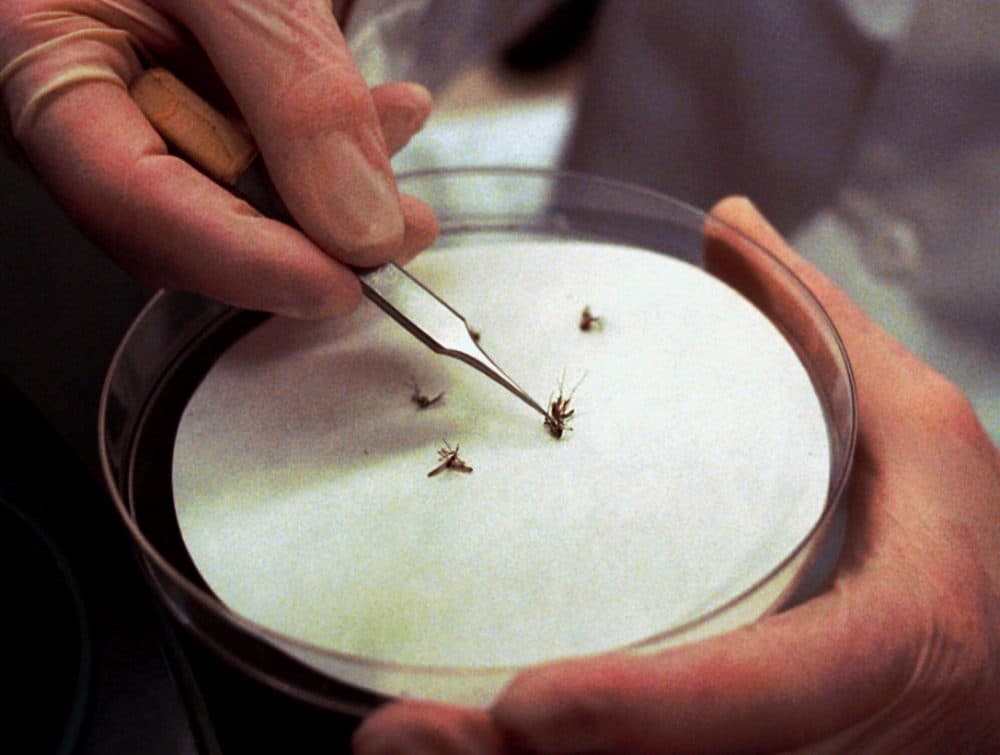Advertisement
EEE Detected In Mosquito Sample From Orange, Mass., State Health Officials Say

A sample of mosquitoes in Massachusetts tested positive for the eastern equine encephalitis (EEE) virus, state public health officials said.
The sample was collected on July 1 near the town of Orange in Franklin County, the Massachusetts Department of Public Health said in a statement released Friday.
"No human or animal case of EEE has been detected so far this year," the statement said. "Today’s finding increases the risk level of EEE to moderate in the communities of Orange and Athol."
Public Health Commissioner Monica Bharel said the state has been preparing for a resurgence of the rare but sometimes deadly disease this year, who added that continued surveillance of mosquitoes in the coming weeks will "help us understand more about how quickly the virus might emerge this year."
Humans are generally exposed to the virus through mosquito bites. Last year, half of the 12 people infected died. There were nine domestic animals that also contracted the disease in 2019.
“People have been spending time indoors due to COVID-19 and now, as we venture out, we want to remind people about the need to protect themselves and their loved ones from illnesses caused by mosquitoes,’’ said state epidemiologist Dr. Catherine Brown, who pointed the public to the state's website tracking the risk of mosquitoes and ticks. "We are also asking people to remain aware of the level of virus activity in areas where they live, work, and play."
The statement added that the public should take precautionary measures, such as applying mosquito repellents and considering lessening activities outdoors between dusk and dawn, when the presence of the bugs are at its peak. It also recommended that people drain any standing water on their properties that could attract mosquitoes.
In the video below, Brown explains more about precautionary measures residents can take against EEE:

